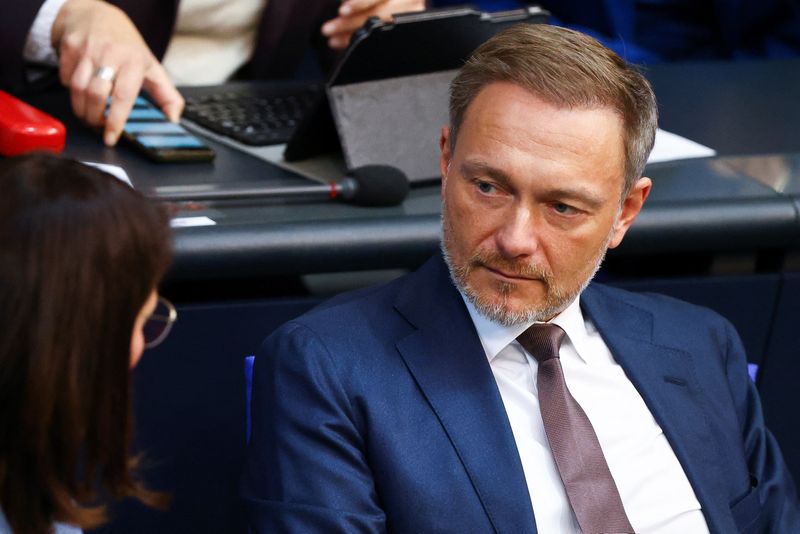Investing.com’s stocks of the week
HELSINKI (Reuters) - Large subsidies and debt are not the right response to the U.S. Inflation Reduction Act, which should instead be an opportunity to reconsider the framework conditions for European industry, German Finance Minister Christian Lindner said on Wednesday.
"We need fiscal discipline and the improvement of existing instruments," Lindner told a news conference in Helsinki, saying debates about creating new instruments were "inefficient."
The U.S. Inflation Reduction Act, with $369 billion of subsidies largely for manufacturers based in North America, has put the European Union on the defensive. European leaders fear the local content requirements may lure companies away from the region.
"We need better quality public sector spending instead of more quantity," Lindner said, a reference to those proposing additional subsidies for the European green industry to level the playing field with the U.S. "It's time to return to sustainable public finances."
He rejected the idea of EU mutualized debt and the proposal of a EU sovereignty fund. "The idea of mutualizing debt is a solution always looking for a problem," Lindner said.
Finnish Finance Minister Annika Saarikko said there is EU funding available, as only a part of the funds made available by the bloc's 750-billion euro ($802.43 billion) recovery fund - dubbed Next Generation EU - has been used.
"EU funds should be utilized as flexibly as possible," she said.
($1 = 0.9347 euros)
